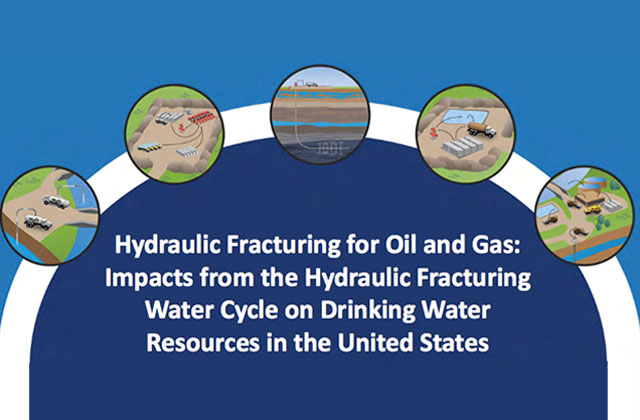The EPA’s long-awaited assessment on how fracking impacts drinking water came out yesterday (December 13), and its findings are both suprising and expected.
The report stated that the extractive drilling process can impact drinking water sources “under some circumstances.” These findings are surprising considering the agency’s draft assessment, which was released in June 2015 and avoided such explicit language—the result of a conscious last-minute decision, as an investigation unearthed.
Yet it was this investigation that also made the final assessment’s framing expected. The draft’s executive summary initially highlighted impacts on water, but instead emphasized that fracking does not lead to "widespread, systemic impacts to drinking water resources." For its final assessment, the EPA could no longer downplay the risks associated with the process.
As the report states, drinking water is more at risk under certain circumstances. These situations include drilling when groundwater is in decline, drilling into inefficiently built wells, disposing of fracking wastewater irresponsibly and spilling fluids and chemicals used during the process in high volumes or concentrations. Addressing these situations should minimize negative impacts, the study says.
Drought-ridden states like Texas are especially vulnerable to localized contamination due to their dwindling groundwater. However, so are locations like Louisiana where groundwater is under stress from industry overuse.
This assessment included information gathered from consultations with state representatives, tribes, industry experts and the public, according to the agency’s emailed press release.
Find the full 666-page study or its 50-page executive summary here.
